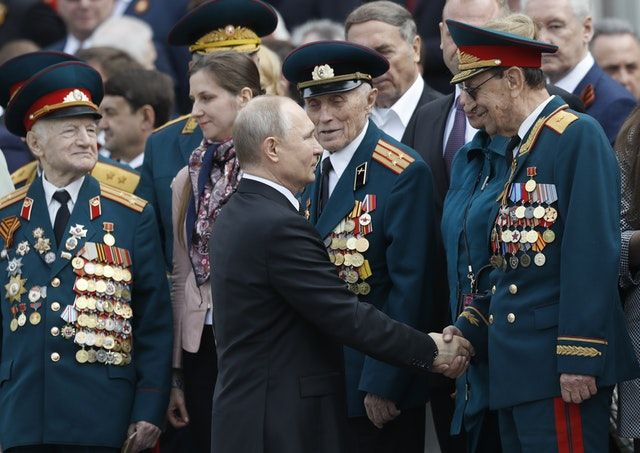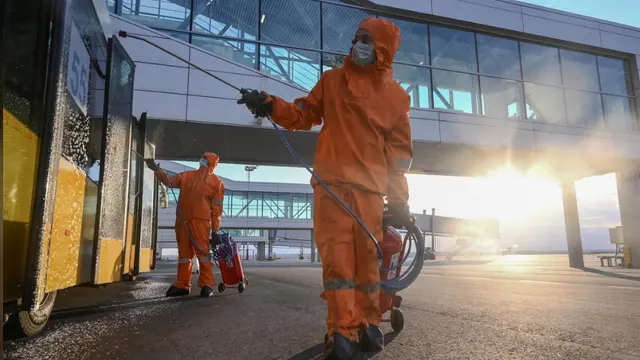
Russian President Vladimir Putin decided to postpone the annual Victory Day parade amid the pandemic. /AP
World War II ended in Europe on May 9, 1945. The Nazis' last stand in Berlin had already fallen by then, Hitler committed suicide, and the guns went silent. In the epic struggle, 26.6 million citizens of the Soviet Union laid their lives – almost one-third of all the WWII casualties.
Per statistics, for every American soldier who died during that conflict, 80 Soviet troops lost their lives. On June 24, 1945, victorious Soviet soldiers were given a glorious welcome at the military parade at Moscow's Red Square.
This year, on the 75th anniversary of the great victory, Russia planned a massive show of its military might at the same place where the victors marched back in 1945. Dozens of foreign leaders confirmed attendance. The plan was also for hundreds of soldiers from many countries around the world to join the parade and march at the Red Square.
But the COVID-19 pandemic had a different plan.
Although the spread of the virus in Russia had a slow start, the epidemic started picking up its pace as spring progressed, particularly in Moscow. One after another, major international events scheduled to be held in Russia were either canceled or postponed: the Russian Investment Forum in Sochi, SPIEF in Saint Petersburg, and many others. Much anticipated referendum on constitutional changes, scheduled for April 22, was also postponed, "until the epidemic is over."
And just a few days ago, Russian President Vladimir Putin decided to postpone the parade.

Specialists wearing protective gear spray disinfectant while sanitizing a street to prevent the spread of the coronavirus in Moscow, Russia, April 18, 2020. /Reuters
The decision came after an open letter from the remaining veterans who asked him to postpone the parade "indefinitely," due to safety fears for both participants and the guests. It was a signal for the entire country that the COVID-19situation is very serious.
The rapidly rising numbers of those infected in days that followed just confirmed the fear. From only a few dozen infected per day, numbers quickly grew to over 4,000. On a brighter note, the reported death rate in Russia so far is under 0.9 percent, with almost 48,000 confirmed infected on April 20.
Yet the toll on the Russian economy is already seen and felt across the country.
Oil prices plummeted to 1998 levels, citizens personal incomes dropped over 10 percent thus far, and national airline companies canceled most of their flights. The experts say that the Russian economy would lose almost 245 billion U.S. dollars due to the pandemic, and the number is likely to rise.
The worst case scenario says that nearly 15.5 million workers in Russia could lose their jobs because of the pandemic.
To prevent the situation from getting out of control, Russian President Vladimir Putin ordered the government to prepare a string of economic measures to support those hit the hardest, from airline companies to small and medium businesses.
The peak of the epidemic in Russia is still not reached, hence it is more difficult to estimate the total economic damages the country is going to suffer at its end. But one thing is for sure: it is going to be massive.
 简体中文
简体中文




